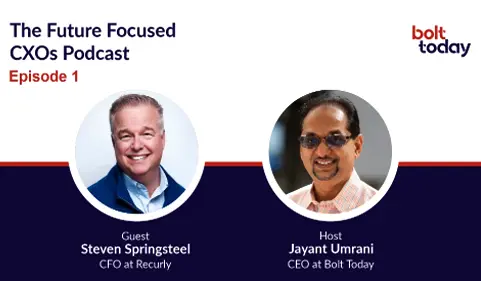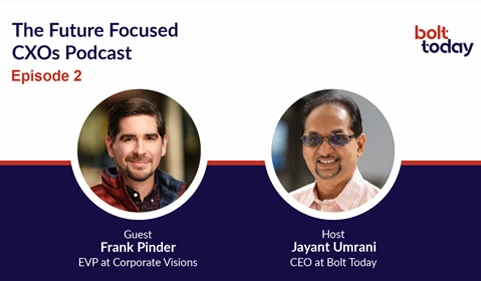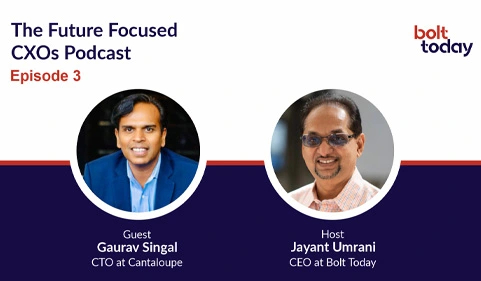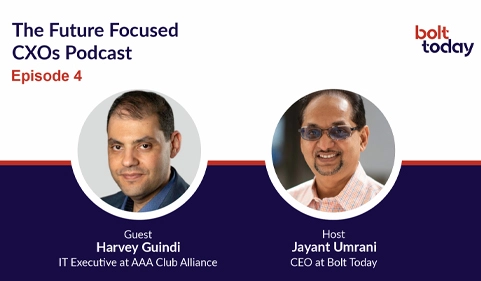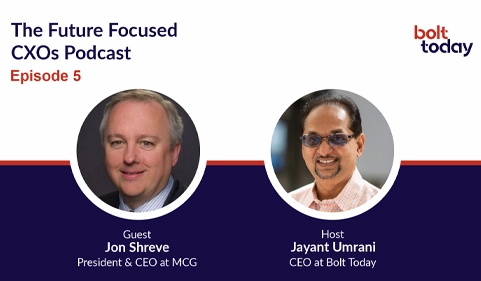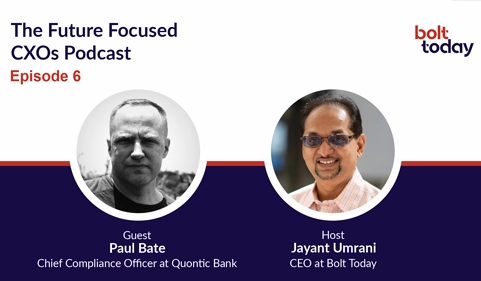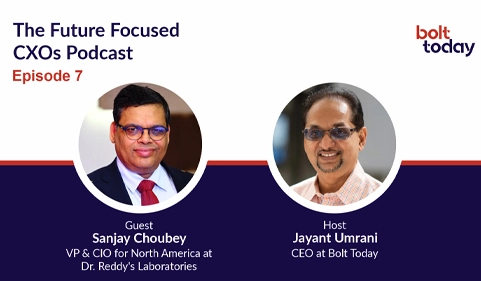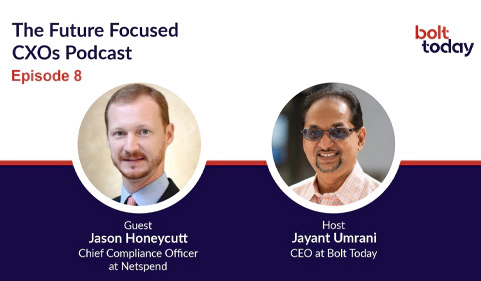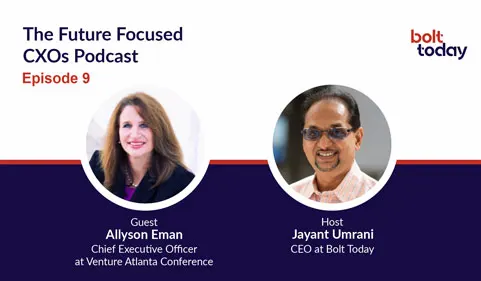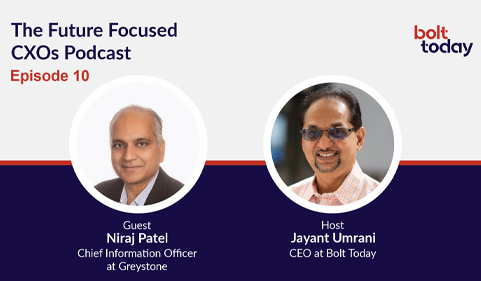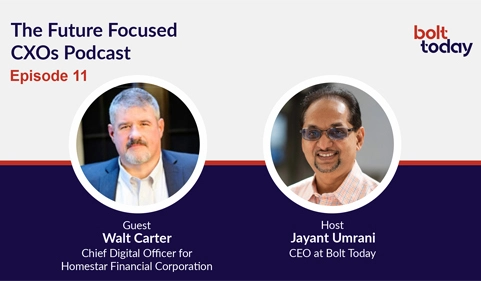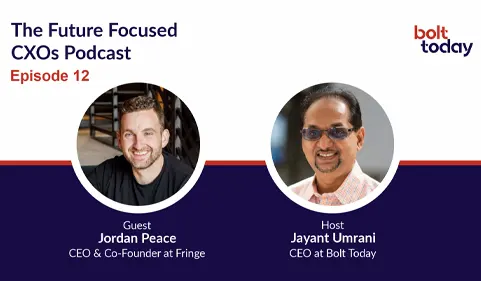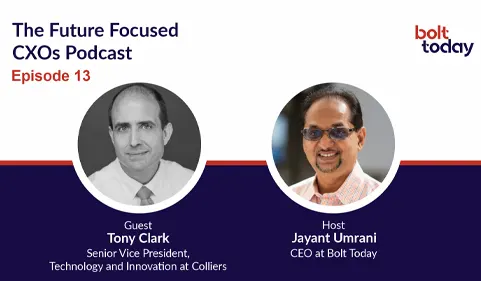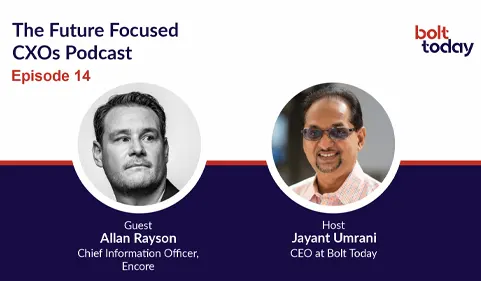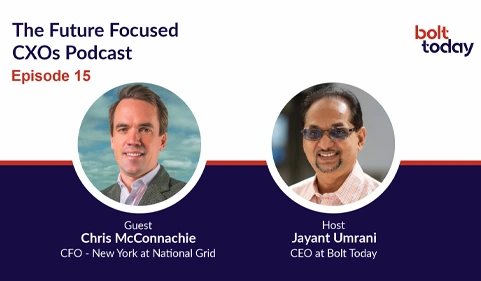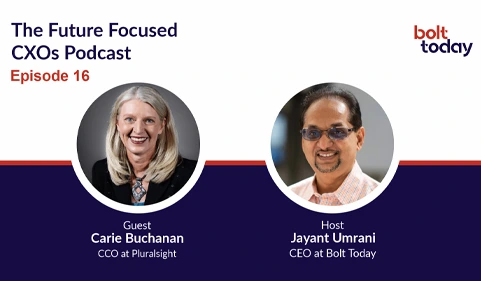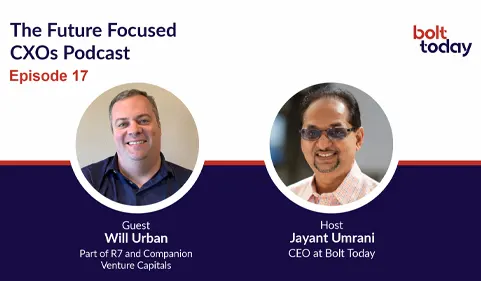Discover the winning strategies used by top CXOs to drive growth in their companies, even in the toughest of times! Join us on this must-listen podcast as we learn from the best in the business world.
In this episode of Future Focus CXOs, we're thrilled to introduce our distinguished guest, Walt Carter, a technology leader with over 30 years of experience in aligning technology choices to business strategy and driving results-focused innovation. Walt is currently serving as the Chief Digital Officer and CIO of Homestar Financial Corporation, one of the nation's fastest-growing mortgage lenders.
Tune in to Engaging Conversations and Insights!
Topics Discussed
4:32 - In my experience, I've been hired three times to lead digital transformations at different companies. While the initial excitement is high, I've found that organizations often underestimate the work required. They think they're ready, but they're far from it. There's often a significant amount of technology debt that hasn't been addressed, and executives may not fully understand the depth of the challenges.
Currently, CIOs are facing pressure to embrace AI and new technologies, but budget constraints can be a roadblock. Additionally, cultural readiness and executive alignment are crucial factors. The type of industry and its history can also impact readiness. Overall, successful digital transformation requires more than just technology; it requires organizational and cultural preparedness.
11:44 - The PMBOK is valuable. However, digital transformation isn't as simple as following existing best practices. Every organization is unique, even in the same industry, making standardization a challenge. Better models like the Lippitt Knoster framework emphasize defining the vision, achieving alignment, creating the right incentives, having the right people and resources, and maintaining alignment. This framework is a powerful tool for change management.
14:10 - AI, as we know it today, has some distinctions. I've been involved with the Applied AI Society of Atlanta for about seven years. Initially, we focused on AI, but much of it turned out to be more like machine learning (ML). The key difference is that AI can make decisions and take actions at the point of analysis, like a human. On the other hand, ML often involves processing data centrally and then pushing results out. Even with advanced ML and large language models like Chat GPT or Bard, they resemble what I did 40 years ago—creating algorithms and decision trees. The real challenge lies in cleansing and normalizing data for valuable insights. Cleansing data can be time-consuming and requires a substantial investment before AI can generate meaningful results.
16:44 - In the context of Salesforce Implementation, combining AI with robotic process automation and a workflow engine can significantly enhance the mortgage industry's automation and precision. However, there will likely be resistance from some in the industry due to varying perceptions of risk. The ability to leverage AI and ML in automation hinges on using best practices and historical data. Yet, convincing industry professionals to embrace these technologies can be challenging, as there are concerns about potential job displacement and fear of overzealous automation undermining market competitiveness.
20:40 - I believe AI can greatly reduce friction and enhance omnichannel experiences by consolidating customer interactions. However, current AI tools have room for improvement. They can be hit or miss in terms of data quality, and as consumers, we often don't know the quality of the data they use. For example, Chat GPT has improved but still makes mistakes. Protecting our data while using AI remains a challenge, especially when well-intentioned individuals in our organizations want to experiment with these tools, holding credentials to our systems.
23:00 - In my 40 years of experience, I've learned that organizations are constantly changing, much like the ever-flowing currents of a river. When considering transformation, we must ask whether it's simple, complicated, complex, or chaotic. Simple transformations often have clear best practices, while complicated ones require more investigation.
Adding the term "digital" to transformation raises questions about how digital components impact existing processes, particularly data. Normalizing, standardizing, and cleansing data become pivotal. Regarding AI, it has the potential to streamline processes and enhance customer experiences, but it won't replace jobs overnight. Technology continues to evolve, making it an exciting time to witness these transformations.
27:36 - I view it as highly disruptive. Instead of focusing solely on loans, mortgage companies are essentially document management and evaluation firms. Collecting and assessing borrower and property documents is a core part of the process, and today, it can all be digital. This transformation emphasizes efficient document collection, evaluation, and risk assessment, streamlining the lending process. Holding onto these documents for extended periods and chasing borrowers for paperwork are major challenges in the industry. Educating borrowers, especially first-time buyers, is also crucial, and we're working on a game-based solution to make this process more engaging and informative.
34:36 - When assessing startups, I focus on understanding the problem they're solving and whether it's a complete or partial solution. As Peter Drucker said, a business exists to acquire, sell to, and retain customers.
To evaluate startups, I use the Moat Framework, which stands for Management, Operations, Administration, and Technology layers. Analyzing how changes impact each layer is crucial for successful transformation in a company.
37:49 - In the executive world, especially for CXOs, if you're the only one who's considered the "magic" and not your team, there's a bottleneck to your success. Recognize that your team is the real magic; they need a good leader to maximize their potential. The biggest hurdle to getting out of your way is understanding yourself. Know what you want from your position and what satisfies you. Everyone observes how you behave and respond. If you're a senior leader, your actions have a significant impact on others' lives within the organization. Embrace change, adapt, and strive to create value for others while enjoying the process.

